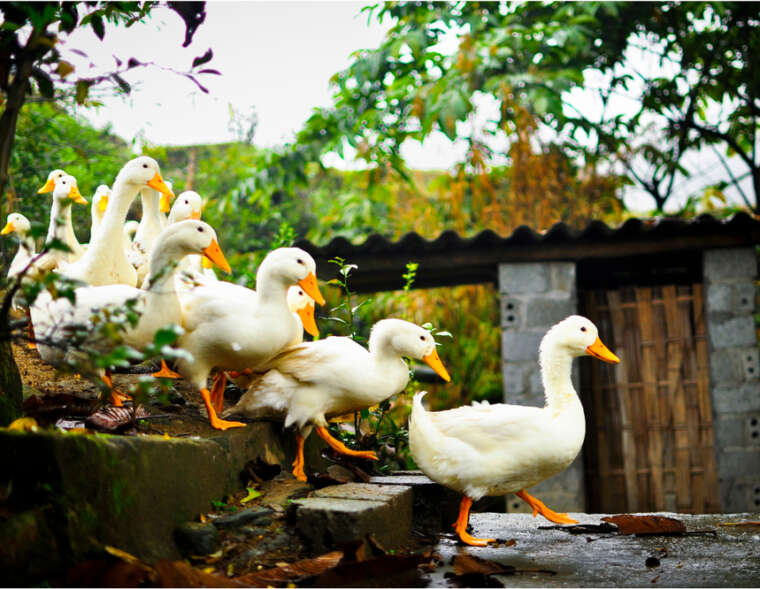Rimanere is an irregular, second conjugation verb that means to stay, to remain.
Unlike regular -ere verbs, where the past participle has an -uto ending, the past participle of rimanere is ending in -sto making it rimasto. It falls into the group of -ere verbs ending in -sto. This group also contains chiedere (chiesto – to ask), rispondere (risposto – to answer), vedere (visto – to see). Bear in mind that it is in fact the majority of the most frequently used -ere verbs that are irregular.
Rimanere is an intransitive verb, meaning it does not take a direct object but it is always followed by a preposition. It uses the auxiliary verb essere when forming compound tenses and can also be used with other verbs.
Have you ever wondered in which cases you should use rimanere rather than restare? They both mean to stay, to remain. However, there is a difference that is so subtle that even Italian natives may not be able to recognise. In most cases, both rimanere and restare can be used interchangeably.
While restare implies a place where you are supposed to stay, rimanere refers to a certain period of time. If you are looking for a verb that can express both meaning and can be easier to use, then you can try with stare. It also follows the same conjugation pattern of restare, being an -are verb.
- Resta a casa questa sera, per favore (Stay home tonight, please) (You are asking the other person to stay in a specific place with you)
- Rimaniamo a casa per una settimana, poi partiremo (We’re staying home for one week, then we’ll leave) (You are express the length of time you are going to stay in a place)
- Stai qui, non allontanarti (Stay here, don’t go far)
- Starete a Londra a lungo? (Are you going to stay in London for a long time?)
Below are the conjugations for the verb in tables, with example sentences and translations underneath.
- Tu rimani qui, io tornerò presto (You stay here, I will be back soon)
- Questa storia rimarrà un segreto (This story will remain a secret)
- È rimasto positivo anche se era triste (He stayed positive even if he was sad)
- Rimanete aggiornati sulla situazione (Keep track of the situation)
- Il segreto rimase fra noi (We kept the secret between us)
- Restate uniti! (Stick together!)
Indicativo
| PRESENTE |
| io rimango |
| tu rimani |
| lui/lei rimane |
| noi rimaniamo |
| voi rimanete |
| loro rimangono |
Io rimango qui. – I stay here.
Voi potete andare, io rimango ancora un po’ con la nonna. – You can go ahead, I will stay with Granny a little longer.
Tu rimani mio amico. – You remain with your friend.
Dovresti accelerare un po’ il passo. Rimani sempre indietro quando andiamo a passeggiare. – You should walk a bit faster. You fall behind every time we go for a walk.
Lei rimane sola. – She remains alone.
Un giorno alla settimana Giulia viene a fare i compiti a casa nostra e poi rimane a cena con noi. – Once a week Giulia comes to our place to do her homework and then she stays for dinner.
Noi rimaniamo con voi. – We stay with you.
Rimaniamo in ufficio un po’ più a lungo per sistemare tutti i documenti prima delle vacanze. – We are staying at the office a bit longer to sort out all the paperwork before the holidays.
Voi rimanete fino a domani. – You stay here until tomorrow.
Rimanete sempre della vostra idea che non bisogna tenere animali in appartamento? –
Loro rimangono felici. – They stay happy.
Rimangono spesso chiusi fuori siccome dimenticano sempre le chiavi da qualche parte. –
| IMPERFETTO |
| io rimanevo |
| tu rimanevi |
| lui/lei rimaneva |
| noi rimanevamo |
| voi rimanevate |
| loro rimanevano |
Io rimanevo al parco. – I remained at the park.
All’inizio rimanevo sconvolto dai suoi commenti, ma ora non ci faccio neanche caso. – In the beginning I was shocked by her comments, but I don’t even care now.
Tu rimanevi spesso. – You remained often.
Rimanevi seduta in giardino per ore; ti piaceva leggere e osservare la natura. – You would sit in the garden for hours; you liked reading and observing nature.
Lui rimaneva a casa. – He remained at home.
Non rimaneva più molto denaro nel loro conto bancario. – There wasn’t much money left in their bank account.
Noi rimanevamo in vacanza. – We remained on holiday.
Rimanevamo sempre perplessi di fronte all’attitudine di quell’uomo. – We always felt puzzled by the attitude of that man.
Voi rimanevate dove eravate. – You stayed where you were.
Da bambini non rimanevate mai soli. – When you were children you were never left on your own.
Loro rimanevano qui. – They stayed here.
Nelle sere d’inverno rimanevano a casa a chiacchierare davanti al caminetto. – On winter nights they would stay home and chat in front of the fireplace.
| PASSATO REMOTO |
| io rimasi |
| tu rimanesti |
| lui/lei rimase |
| noi rimanemmo |
| voi rimaneste |
| loro rimasero |
Io rimasi solo. – I remained alone.
Lui rimase impassibile per tutta la durata della cerimonia. – He remained impassive during the whole ceremony.
| FUTURO SEMPLICE |
| io rimarrò |
| tu rimarrai |
| lui/lei rimarrà |
| noi rimarremo |
| voi rimarrete |
| loro rimarranno |
Io rimarrò sempre. – I will always be there.
Il loro ricordo rimarrà per sempre scolpito nei nostri cuori. – The memory of them will always be engraved in our hearts.
Rimarremo sempre a vostra disposizione per qualsiasi ulteriore informazione. – We will be at your disposal for any further inquiry.
Rimarremo ancora un poco. Un paio di ore, non di più. – We will stay a bit longer. A couple of hours, no more.
| PASSATO PROSSIMO |
| io sono rimasto (-a) |
| tu sei rimasto (-a) |
| lui/lei è rimasto (-a) |
| noi siamo rimasti (-e) |
| voi siete rimasti (-e) |
| loro sono rimasti (-e) |
Io sono rimasto a casa. – I have stayed at home.
Siamo rimasti molto delusi dal comportamento di certe persone che si spacciavano per amiche. – We were very disappointed by the behaviour of some people that called themselves friends.
Tu sei rimasto. – You have remained.
A forza di volere ottenere sempre di più, sei rimasto a bocca asciutta. – As you have always wanted more, you were left with nothing.
Lei è rimasta. – She has remained.
È rimasta sotto il sole tutta la mattina e ora si ritrova con un grave eritema. – She sunbathed all morning and now she has a serious rash.
Noi siamo rimasti qui. – We have stayed here.
Siamo sempre rimasti noi stessi e possiamo andare in giro a testa alta. – We have always been ourselves and we can keep our head high.
Voi siete rimasti da me. – You have stayed by me.
Siete rimasti indietro rispetto al gruppo. Bisogna che andiate un po’ più veloci. – You fell behind the rest of the group. You need to walk a little faster.
Loro sono rimasti con voi. – They have stayed with you.
Sono rimasti colpiti dalla tua bravura e dalla tua professionaità. – We were impressed by your abilities and professionalism.
| TRAPASSATO PROSSIMO |
| io ero rimasto (-a) |
| tu eri rimasto (-a) |
| lui/lei era rimasto (-a) |
| noi eravamo rimasti (-e) |
| voi eravate rimasti (-e) |
| loro erano rimasti (-e) |
Io ero rimasto da te. – I had stayed with you.
Il tempo era rimasto brutto, di conseguenza la gita venne annullata. – The weather was still bad, so the trip was cancelled.
| TRAPASSATO REMOTO |
| io fui rimasto (-a) |
| tu fosti rimasto (-a) |
| lui/lei fu rimasto (-a) |
| noi fummo rimasti (-e) |
| voi foste rimasti (-e) |
| loro furono rimasti (-e) |
Io fui rimasto solo. – I had remained alone.
Se voi foste rimasti ancora una o due ore forse avreste potuto evitare l’incidente. – If you had stayed one or two more hours, you could have avoided the accident.
| FUTURO ANTERIORE |
| io sarò rimasto (-a) |
| tu sarai rimasto (-a) |
| lui/lei sarà rimasto (-a) |
| noi saremo rimasti (-e) |
| voi sarete rimasti (-e) |
| loro saranno rimasti (-e) |
Io sarò rimasto fino alla fine. – I will have stayed until the end.
Una volta che sarà rimasta incinta smetterà subito di lavorare. – As soon as she gets pregnant she will stop working.
Congiuntivo
| PRESENTE |
| che io rimanga |
| che tu rimanga |
| che lui/lei rimanga |
| che noi rimaniamo |
| che voi rimaniate |
| che loro rimangano |
Strano che rimanga. – Strange that I remain.
Ho bisogno di parlarti di qualcosa, ma devi promettermi che rimanga tra noi. – I need to tell you something, but you must promise that it will be kept between us.
| IMPERFETTO |
| che io rimanessi |
| che tu rimanessi |
| che lui/lei rimanesse |
| che noi rimanessimo |
| che voi rimaneste |
| che loro rimanessero |
Eri felice che rimanessi. – You were happy for me to stay.
Non era necessario che voi rimaneste in ufficio fino alle dieci di sera. – It wasn’t necessary for you to stay at the office until eleven in the evening.
| PASSATO |
| che io sia rimasto (-a) |
| che tu sia rimasto (-a) |
| che lui/lei sia rimasto (-a) |
| che noi siamo rimasti (-e) |
| che voi siate rimasti (-e) |
| che loro siano rimasti (-e) |
Sei contento che sia rimasto? – Are you happy that I stayed?
| TRAPASSATO |
| che io fossi rimasto (-a) |
| che tu fossi rimasto (-a) |
| che lui/lei fosse rimasto (-a) |
| che noi fossimo rimasti (-e) |
| che voi foste rimasti (-e) |
| che loro fossero rimasti (-e) |
Era triste che fossi rimasto. – He was sad that I remained.
Il fatto che fossi rimasto a dormire fino a tardi sembrò contrariarla molto. – She seemed very annoyed that I had slept until late.
Condizionale
| PRESENTE |
| io rimarrei |
| tu rimarresti |
| lui/lei rimarrebbe |
| noi rimarremmo |
| voi rimarreste |
| loro rimarrebbero |
| PASSATO |
| io sarei rimasto (-a) |
| tu saresti rimasto (-a) |
| lui/lei sarebbe rimasto (-a) |
| noi saremmo rimasti (-e) |
| voi sareste rimasti (-e) |
| loro sarebbero rimasti (-e) |
Imperativo
| PRESENTE |
| – |
| rimani |
| rimanga |
| rimaniamo |
| rimanete |
| rimangano |
“One of the most important areas we can develop as professionals is competence in accessing and sharing knowledge”









